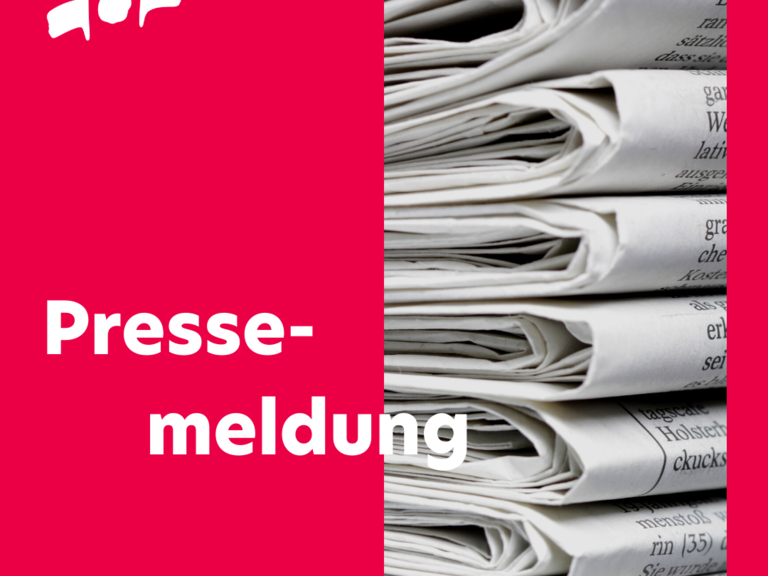Fates of Jewish residents of Hof
The fate of Jewish fellow citizens under National Socialism still affects us today. Great injustice was done to them, for which we today are not personally to blame. But we are responsible for ensuring that contempt for humanity and violence never again gain the upper hand. That is why it is important to remember this. This is happening at various levels and also in our city of Hof. Dr Ekkehard Hübschmann's commendable academic research into the fates of Jewish families in Hof was funded by the Hermann and Bertl Müller Foundation, which also organized a competition for schoolchildren together with other partners.

Interactive city map and audio guide
A very successful contribution was made by pupils from the Schiller Grammar School with an interactive map of the city based on the buildings in which Jewish families lived or did business. QR codes refer to further information. A permanent installation using granite steles on the sidewalk has been realized. The handover to the public took place on May 8, 2025.
The project by the "School without Racism" student group at Schiller-Gymnasium Hof was funded by the Federal Ministry for Family Affairs, Senior Citizens, Women and Youth as part of the federal "Live Democracy!" program. The Wolfgang-Siegel-Stiftung and Sparkasse Hochfranken also provided significant support.
You can find the interactive city map and information about the Jewish families to listen to at
schicksale-juedischer-hofer.de
The flyer for the tour is available for download:
Klosterstrasse 10
Tailoring workshops of the Franken family
From 1921, Klosterstraße 10 was home to one of the four tailor's workshops belonging to the Jewish Franken family. The respected businessman Max Franken ran a renowned men's wardrobe store at Ludwigstraße 36 in Hof. The tailor's workshops were located at Ludwigstraße 36 and 39 as well as Klosterstraße 10 and 27.
After years of National Socialist reprisals, Max Franken had to give up his business in 1936 and his company was aryanized. In 1938, the Franken family was expelled from Hof. Max Franken was subsequently imprisoned and mistreated. The forced emigration by the Gestapo led the destitute Max Franken to Argentina, where he died in 1957. His wife and three daughters were deported. Only two daughters survived.

Klosterstraße 27
Tailoring workshops of the Franken family
From 1921, one of the four tailoring workshops of the Jewish Franken family business was located at Klosterstraße 27. The respected businessman Max Franken ran a renowned men's wardrobe store at Ludwigstraße 36 in Hof. The tailor's workshops were located at Ludwigstraße 36 and 39 as well as Klosterstraße 10 and 27.
After years of National Socialist reprisals, Max Franken had to give up his business in 1936 and his company was aryanized. In 1938, the Franken family was expelled from Hof. Max Franken was subsequently imprisoned and mistreated. The forced emigration by the Gestapo led the destitute Max Franken to Argentina, where he died in 1957. His wife and three daughters were deported. Only two daughters survived.
Ludwigstrasse 36
Men's wardrobe business of the Franken family
From 1914 to 1936, Ludwigstraße 36 was home to the men's wardrobe store of the Jewish Franken family. From 1921, the respected businessman Max Franken also ran four tailoring workshops, one in this building and others at Ludwigstraße 39 and Klosterstraße 10 and 27, employing up to 100 workers.
After years of National Socialist reprisals, Max Franken had to give up his business in 1936 and his company was aryanized. In 1938, the Franken family was expelled from Hof. In 1941, Max Franken was imprisoned and mistreated. The forced emigration by the Gestapo led the destitute Max Franken to Argentina, where he died in 1957. His wife and three daughters were deported. Only two daughters survived.
Ludwigstrasse 43
House of the Franken family
The respected Jewish businessman Max Franken lived at Ludwigstraße 43 with his wife Therese Henriette and his three daughters. He ran a renowned men's wardrobe store at Ludwigstraße 36 and tailoring workshops at Ludwigstraße 36 and 39 as well as Klosterstraße 10 and 27, employing up to 100 workers in total.
After years of National Socialist reprisals, Max Franken had to give up his business in 1936 and his company was aryanized. In 1938, the Franken family was expelled from Hof. In 1941, Max Franken was imprisoned and mistreated. Forced to emigrate by the Gestapo, the penniless Max Franken went to Argentina, where he died in 1957. His wife died in Stutthof concentration camp in 1944 and his daughter Lore died in Poland shortly after liberation in 1945. His daughters Margarete and Käthe survived.
Lorenzstrasse 7
Shoe store of the merchant Max Heymann (plaque on the house in planning)
From 1912, the businessman Max Heymann ran the "Ludwig Schloß" shoe store at Lorenzstraße 7, which he had taken over from Max Schloß and which had been founded in 1894 by Lehmann (Ludwig) Schloß - both also Jewish merchants.
After the National Socialist takeover and the April 1933 boycott, the Heymann family was no longer able to maintain their business for long. In 1937, the once respected but then impoverished Hof merchant was taken on by the Jewish community as a synagogue servant. A few months after the destruction of the synagogue, the family moved to Mannheim, from where Max Heymann was deported to the French internment camp Gurs in 1940. He died in the Nexon collection camp (France) in 1942. His son Walter died in Auschwitz in 1943 at the age of 20. His wife Ella and his son Siegfried were able to emigrate to the United States.
Karolinenstrasse 33
Cleaning store and home of the Lax family
At Karolinenstraße 33, Emma Lax, née Lump, a milliner by profession, registered a second store for the lingerie and corset trade in 1927.
The Lax family suffered greatly under the harassment of the National Socialists. In 1934, Emma and her husband Hans Lax gave up the business at Ludwigstraße 55 and moved the company here. In 1937, Emma Lax, as a Jew, was forced to close her business completely. During the November pogrom, the Lax couple were among the first to be taken to the district court prison. In 1939, they had to move to a so-called Jews' house in Leipzig, from where they were deported to the Bełżyce ghetto in 1942. Their fate is unknown.

Ludwigstrasse 54
"Adolf Reiter department store"
In 1902, Adolf (actually Abraham) Reiter founded a department store at Ludwigstraße 54 with a wide range of products, from household and kitchen appliances to luxury goods and toys to Christmas articles. He owned the house, which formed a single unit with the adjacent building at the rear, Karolinenstraße 37. He also lived here with his wife and five sons.
Economically ruined by the reprisals of the National Socialists, he was forced to give up his business in 1936. His two houses were foreclosed. He fled with his wife Sabine Reiter and his youngest son Erich to London, where three of his sons had already emigrated to in 1933. His health weakened by the hardships of Nazi persecution, he died there in March 1939. Sabine Reiter also died in England on July 19, 1957. The couple's children managed to build a new life there. Their son Leo settled in Brazil.

Karolinenstrasse 37
"Adolf Reiter department store"
The building at Karolinenstraße 37 formed a single unit with the adjoining building at Ludwigstraße 54. Here, in 1902, Adolf (actually Abraham) Reiter founded a department store with a wide range of products, from household and kitchen appliances to luxury and toys and Christmas articles. His five sons were also born in Hof.
Economically ruined by the reprisals of the National Socialists, he was forced to close the business in 1936. The two houses were foreclosed. He fled with his wife Sa- bine Reiter and his youngest son Erich to London, where three of his sons had already emigrated to in 1933.
His health weakened by the hardships of Nazi persecution, he died there in March 1939. Sabine Reiter also died in England on July 19, 1957. The couple's children managed to build a new life there. Their son Leo settled in Brazil.
Hallstrasse 9
Synagogue (no stele, wall plaque)
The synagogue in Hof stood here from 1927 to 1938. On September 18, 1927, it was consecrated as part of the new Jewish community center. The first attack on the building was carried out as early as 1928. The once respected merchant Max Heymann was housed here as a synagogue servant in 1937 after the decline of his business. During the November pogrom on November 9-10, 1938, the building was looted and burned at the Saaledurchstrich. The building was demolished on December 15, 1938.

Klostertor 2
District court prison
During the November pogrom on the night of November 9/10, Jewish citizens of Hof were taken from their homes and arrested. They were taken to the district court prison, where Jews from other regions were also incarcerated.
On November 17, 54 prisoners were to be transported by train to the Dachau concentration camp. As this was overcrowded, the transport ended in Regensburg, where they were taken to the prison in Augustenstraße. After five days, they were transferred back to Hof and released in the course of the next few days.




